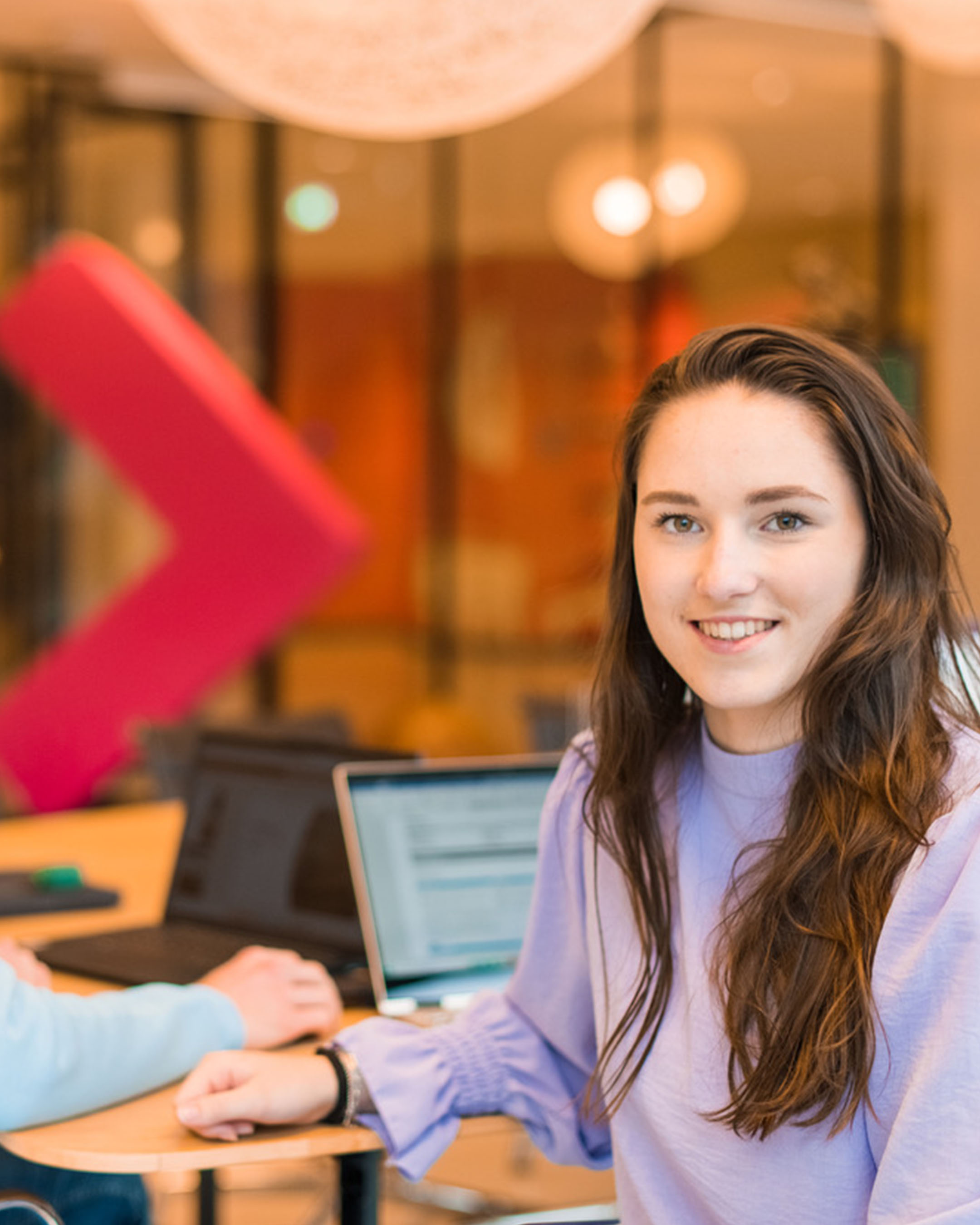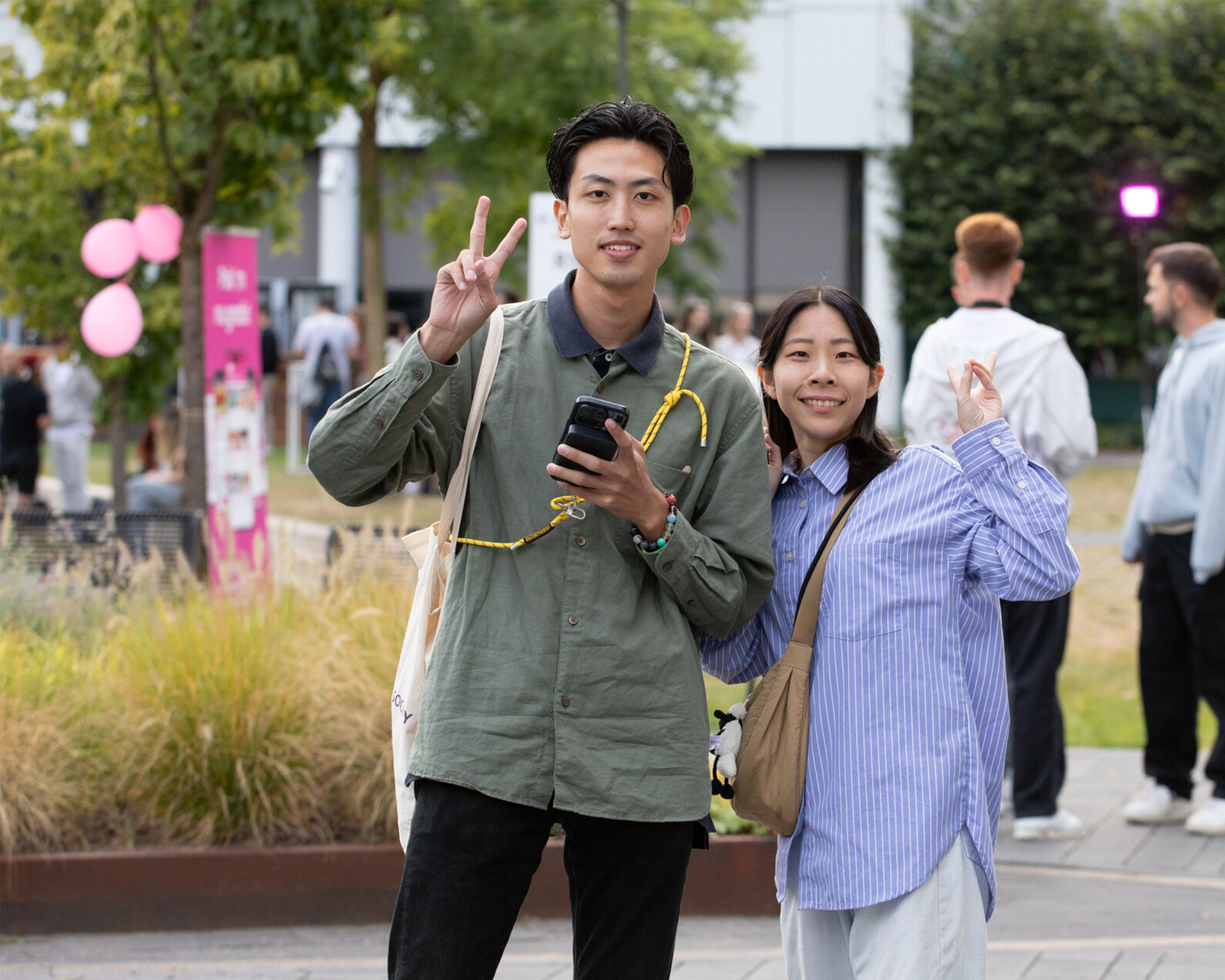

Advanced Informatics
About the exchange programme
With a foundation in software development, the next question is: “And in which areas can I apply my knowledge now?” There are plenty of those. At Fontys Venlo, you can dive into one of the following tracks:
- Business Informatics for understanding the business perspective and requirements onto software,
- Data Science/AI to learn how to understand data, to visualize data and to analyze them with methods of AI,
- Software Engineering for further deepening into concepts of software engineering,
- Embedded Systems to understand how software can help to get data from sensors for measurement and to push data to sensors for making things move or do something.
All tracks have a project, with its main goal being that students apply the concepts of their chosen track. For every track, we offer a standard project case. But much more intriguing is to have an idea of your own (whether in connection with a company or not). Learning how to come up with a project plan and to pitch is part of the project in the beginning. Students work in small groups and relatively on their own.
Admission requirements
For this exchange programme we have the following admission requirements:
- English level: equivalent to IELTS 6.0;
- Intermediate level of IT knowledge is required. The level of this programme is advanced.
How will your course programme be recognised by your home university?
Fontys will provide you with a so-called ‘Transcript of Records’, which will clarify the results that you have achieved. Depending on your results, you will receive a maximum of 30 ECTS credits. ECTS credits are recognised throughout Europe. The agreement between your home university and Fontys University of Applied Sciences will usually include a condition whereby the credits that you obtain will be recognised and transferred into the records kept by your home university.
Practical information
- Start moment(s)
- February
- Location
- Venlo
- ECTs
- 30
- Language
- English
- Duration:
- 1 semester, 20 weeks
- Contact hours
- 15-20 hours per week
Applications should always be submitted via the International Exchange (or Erasmus) Officer at the home university. This officer will send your application request (nomination) to Fontys. Once Fontys has received the nomination, your Fontys study department will send you a link to a web application called Mobility Online. Please take a look here to see how it works.
If you want to come as a freemover, we also need your university to send us a nomination e-mail. Once we have received this we will send you our application information.
As a freemover the fees are €75 per ECTS. If you are not sure if your university is a partner of Fontys Venlo University of Applied Sciences, the international office of your home university can tell you more about this.
Deadlines
Spring semester:
Nomination deadline November 1st
Application deadline November 15th
Fall semester:
Nomination deadline May 1st
Application deadline May 15th
For more information concerning the start date, please get in touch with the contact person of the study department of the concerned exchange programme.
English language requirements
For most English taught exchange programmes a minimum level of English language proficiency of CEFR* B2 or an equivalent of IELTS 6.0 or TOEFL 80 is required. However there might be programmes where a higher level is required and submitting evidence might be necessary.

For more detailed information about practical matters, such as financial matters, residence permit, health insurance and accommodation, please click on the button below.
More information on practical mattersDoing a study abroad most certainly means a lot of excitement and perhaps also a bit of anxiety. Getting used to everything may be a challenge at times. You may have language difficulties or be unfamiliar with certain aspects of life in the Netherlands and at the university.
We receive around 100 international exchange students each semester. To give them a warm welcome into Dutch culture and at our campus, the International Office has set up a buddy programme. A buddy is a Fontys bachelor student who is familiar with the campus and who can give practical help with administrative systems, timetables etc. They know their way around the city of Venlo and can also help students to better understand Dutch traditions and habits and feel at home real soon!
What else can students expect from a buddy? A buddy will:
- meet you at the Venlo train station and accompany you to your room.
- help you get settled during the first weeks by answering practical questions related to living in Venlo and by showing you around town.
- help you with questions about campus life, teaching styles, campus set-up, how to prepare for exams, etc.
- help you with practical questions such as how to print documents, how to get connected to Wi-Fi, get acquainted with the Fontys portal, etc.
- introduce you to Dutch culture.
- be able to join you during social activities.
The programme seeks to give students the best possible start to their study abroad in Venlo and at our campus!

